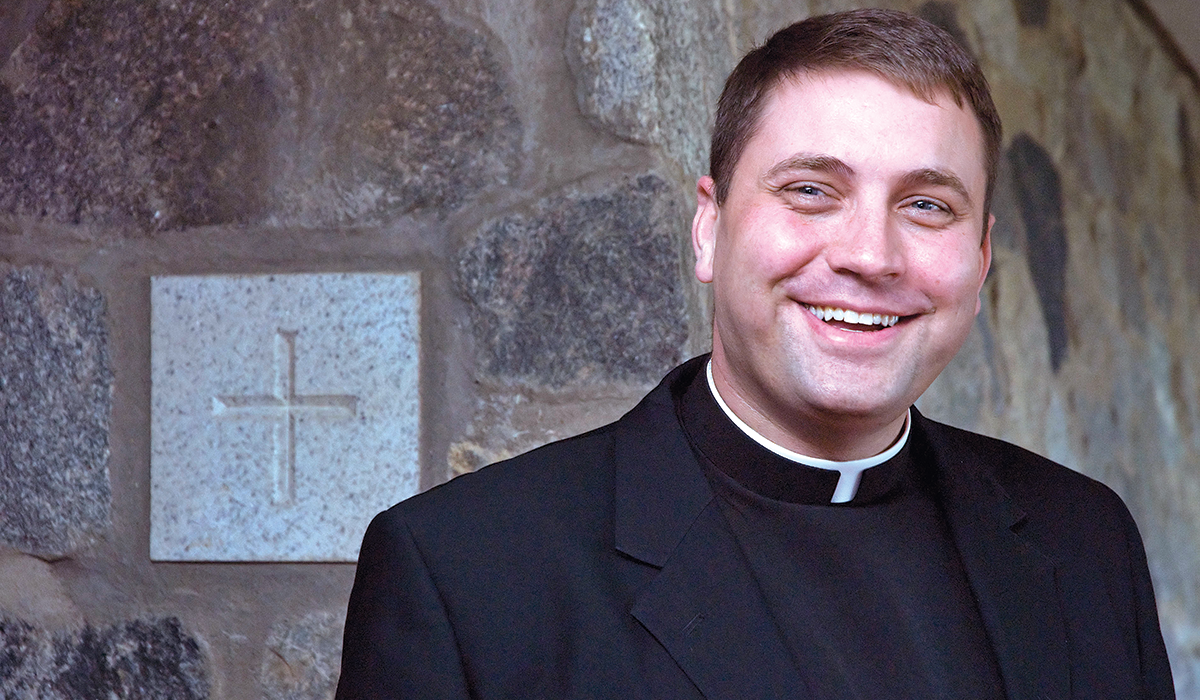

When Monsignor James Shea, Ph.B. 1997, Ph.L. 1998, arrived to start philosophy studies at Catholic University, his future seemed clear: complete theology studies in Washington, D.C., and Rome, Italy; get ordained; and become a parish priest for the Diocese of Bismarck — where he had grown up on a grain and dairy farm, the oldest of eight children. That is exactly what he did, for a time.
Seven years after his 2002 ordination, Monsignor Shea, then 34, was appointed president of the University of Mary in Bismarck, N.D. — making him the youngest college president in the United States.
He found that this new role increasingly drew him into efforts to uphold the conscience rights of Catholic ministries, including healthcare organizations. This past May, he received the Canterbury Medal from the Becket Fund for Religious Liberty, a national non-profit, public-interest legal and educational institute, in recognition of his leadership.
This prestigious award is presented annually to an individual in the public square who “has fought for and defended the basic human right of religious liberty.” It is named after St. Thomas Becket, the 12th-century archbishop of Canterbury who was martyred for defending the rights of the Church.
Shea told CatholicU that religious liberty is important because it “creates the space so we are able to do with clear and healthy consciences the work we believe we are called to do, the work of loving according to the Gospel of Jesus. We believe the Lord … has asked us to labor in the midst of a broken world for charity and hope, to feed the hungry, to instruct those in need of education, to provide care for the sick, to help the poor, to go, as Pope Francis has said, into the margins.”
He feels that the current cultural environment can be challenging for Catholic higher education. “There is an idea that Catholic universities are places to be indoctrinated. Not true. We take seriously the dialogue between faith and reason,” he said, adding, “The one thing the Church needs to insist upon is that Catholic teaching be treated in a dignified way and have its say in an institution of higher learning. The loss of religious freedom threatens freedom of expression and thought. When reason and faith are in dialogue with each other, each can come into its own.”
“The mission of Catholic apostolates is connecting not only to the advancement of the Church’s mission but to advance the common good of all humanity. We are not able to do that without the freedom to follow our faith,” Monsignor Shea said.
Catholic University gave him a sense of the broader vision of the Catholic Church than he had when he was growing up on a farm. “To have an institution of higher learning in all of its dimensions in the middle of the nation’s capital is a commitment that is very impressive, not just to the Church, but to the nation,” he said, adding, “I’m proud to have degrees from Catholic University. I’m so grateful for everything I received.”
— S.G.